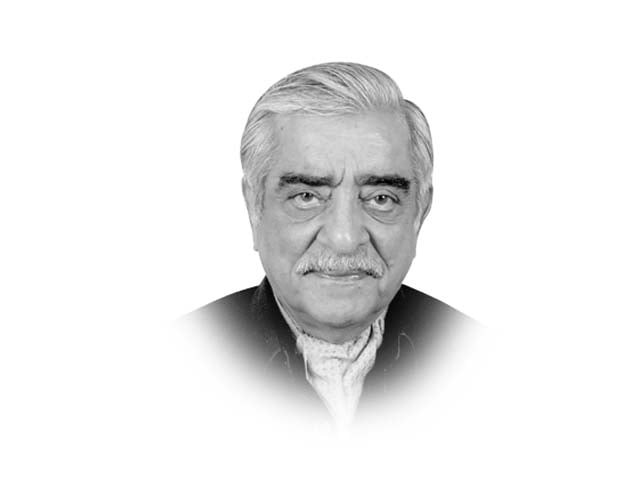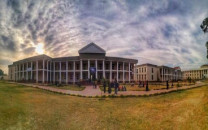Pakistan and Afghan reconciliation — II
Based on press reports, my own estimate is that about 25,000 Americans will remain at Afghan bases.

Pakistan and Afghan reconciliation — II
The Telegraph report says that Iran will publicly and Pakistan will privately object to this extended American stay. Whether this reflected Spanta’s view or the correspondent’s own assessment is not known. Speculation about Pakistan’s reservations may flow from reports appearing earlier that in top-level Pakistan-Afghan meetings, Pakistan had proposed to Afghanistan that it should abandon the alliance with the United States and look to China and Pakistan instead for assistance. This report had been unconvincingly denied in Pakistan and, as far as I know, it had elicited no comment from China but received a great deal of play in Afghanistan.
According to the report, the Russian ambassador in Kabul has already made his country’s objections known, arguing that Afghanistan needs development assistance not military bases. It is apparent that while the insurgency continues, the Karzai administration will feel, despite the reservations of its immediate or far neighbours, that it has no choice but to enter into some such agreement with the Americans. They will argue that by limiting the term to 10 years and by not giving the Americans independent bases, they have done as much as they could to satisfy the nationalist fervour of their own people and to allay the apprehensions of their neighbours. Were they to turn down the agreement, the Americans and Nato would still withdraw by 2014, leading to the collapse of the present regime, a drastic cut in foreign aid, a Taliban offensive to take over and then the onset of civil war as the ethnic minorities resisted Talibanisation. Pakistan has to understand that Afghanistan will enter into this agreement. Opposing it will only add another layer of distrust to Pakistan-Afghanistan relations, particularly when there is no viable alternative on offer. It cannot afford the collapse of the Karzai administration. Pakistan, of course, will recognise that in seeking a prolonged military presence in Afghanistan, the American objective is not only to ensure that Afghanistan never again becomes a safe haven for al Qaeda or al Qaeda-minded groups, but also to “disrupt and dismantle al Qaeda and its support networks that it believes exist in Pakistan”.
Pakistan can be sure therefore that, failing successful reconciliation or action on Pakistan’s own part, the bases in Jalalabad and other Afghan cities will be used to maintain the ongoing barrage of drone attacks on the hideouts in Pakistan of al Qaeda or groups such as the Tehreek-i-Taliban Pakistan and the Haqqani network, which they believe support and provide safe havens to these militants and to attack the routes by which they enter into the famous P2K (Paktia, Paktika and Khost, the Afghan provinces which in addition to North Waziristan in Pakistan are regarded as the stronghold of the Haqqani network). But Pakistan should also calculate that while it will be more difficult, the Americans, in the absence of Afghan bases, will negotiate new usage rights at the base they currently operate in Kyrgyzstan and perhaps gain access to the base in Tajikistan (where the Indians had stationed aircraft) to continue these attacks. They may become somewhat less effective since the longer flying time may make it difficult for the drones to hover over the targets for long enough and targeting may therefore become less accurate but it should be regarded as certain that the American campaign against al Qaeda safe havens will not stop.
(To be continued)
Published in The Express Tribune, August 30th, 2011.



















COMMENTS
Comments are moderated and generally will be posted if they are on-topic and not abusive.
For more information, please see our Comments FAQ